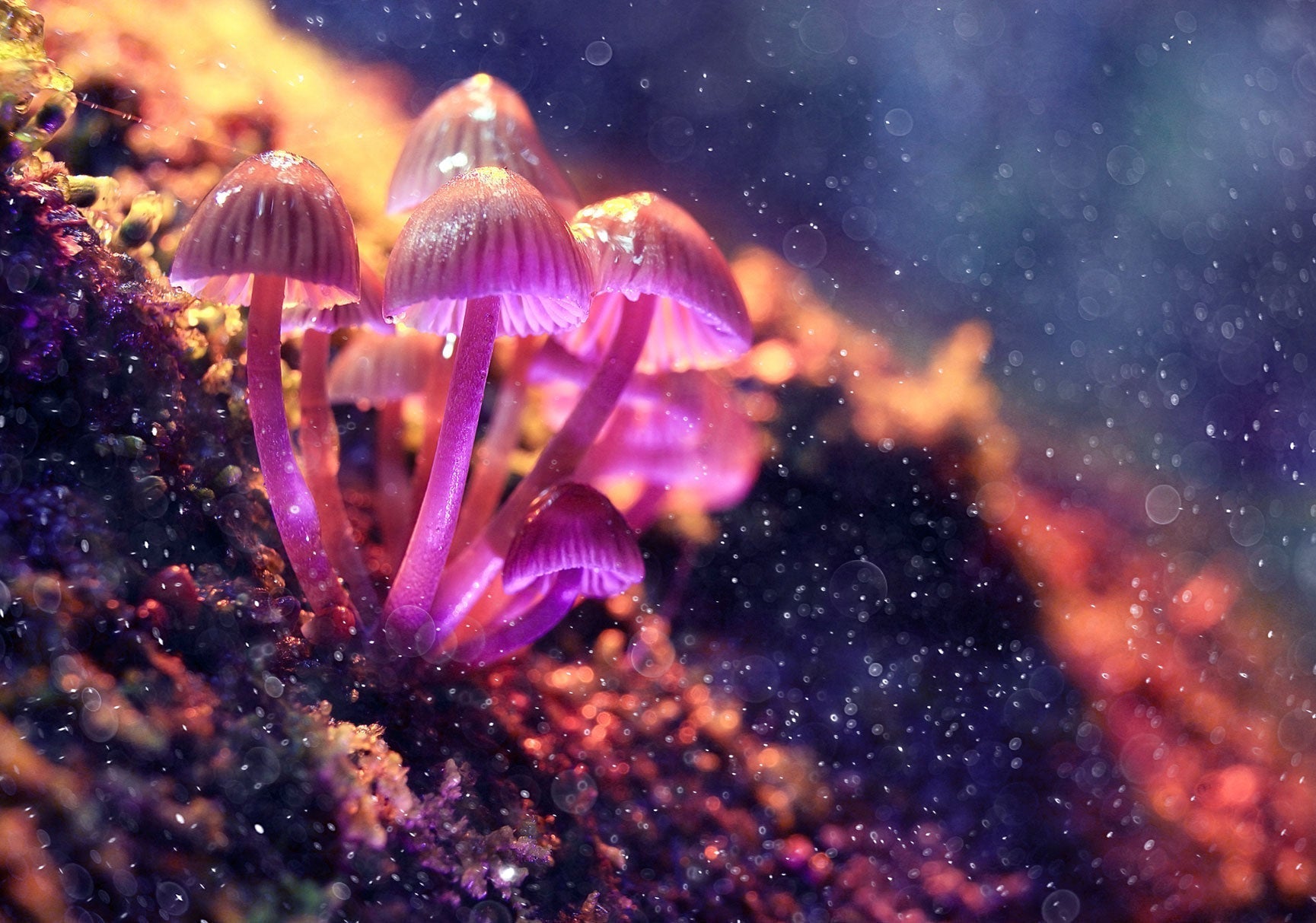Mushrooms are among the oldest fungi in nature, with countless uses among every human generation that has walked on and cultivated the Earth. Many mushrooms have been enjoyed for their culinary uses, offering nutrition, flavor, and texture to dishes that feed the soul.
Some are treasured for their functional uses, helping to support things like heart health, immune function, relaxation, and even athletic performance. And others have been discovered to have mind-altering capabilities, being used to trigger psychedelic experiences and sparking discussion in the mental health community.
There are so many mushrooms out there that you may wonder which ones fall into which category and what the difference is between functional and psychedelic mushrooms. Let’s break down these two very different types of mushrooms and how they work.
The Difference Between Functional and Psychedelic Mushrooms
The two biggest categories of mushrooms are those with functional benefits for health and those that have psychedelic uses. These two groups have very different purposes and mechanisms that affect the body.
Functional Mushrooms
Functional mushrooms are believed to have functional benefits that extend beyond their nutritional makeup. These types of mushrooms contain bioactive plant compounds that have been used for centuries for particular health purposes.[1]
For example, some functional mushrooms have been studied for their potential to support your normal blood sugar regulation, immune health, heart health, and brain health.[2] [3] [4] [5] [6] Many functional mushrooms are prepared into powders, extracts, or gummies that can be easily added to your everyday health routine.
Psychedelic Mushrooms
Psychedelic mushrooms provide mind-altering effects ranging from euphoria to hallucinations. This is because they provide a hallucinogenic chemical compound called psilocybin, which works by activating serotonin receptors in the prefrontal cortex of the brain, related to perception, mood, and cognition. It can also impact other areas of the brain that are involved with your panic and arousal responses.[7]
Some people experience feelings of euphoria, while others have visual and/or auditory hallucinations when consuming psilocybin. This compound distorts reality and perception of the environment around you and can even change thought patterns for several days following use.
Psilocybin mushrooms are usually consumed as part of a food item or a brewed tea to help cover up its bitterness. Alternatively, they might be dried into a powder and taken as a capsule.
Note that the legality of psilocybin mushrooms varies around the world. While the conversation and renewed research is ongoing, their use, sale, and possession is currently illegal under federal law in the United States.[8]
Types of Functional and Psychedelic Mushrooms
Functional mushrooms do not contain psilocybin. They may help support healthy aging, a normal response to stress, restfulness, and the ability to focus, as well as a healthy gut microbiome. Many functional mushrooms contain antioxidants and may even help support exercise performance.
Some of the most well-known functional mushrooms include the following:
- Lion's Mane
- Reishi
- Cordyceps
- Chaga
- Turkey Tail
Psychedelic mushrooms that contain psilocybin are generally small and brown or tan in nature. This can make them easily mistakable in the wild for mushrooms that are actually poisonous. It’s best to avoid eating any mushrooms you find outside due to their potentially toxic nature.
Add Functional Mushrooms to Your Everyday Routine
In addition to enjoying the plentiful culinary mushrooms available, one of the easiest ways to add the benefits of functional mushrooms to your everyday routine is with Fungies Mushroom Gummies. These come in Reishi, Lion’s Mane, and Cordyceps varieties. Each gummy contains the extract of functional mushrooms and tastes like fruit snacks!
References
- Das AK, Nanda PK, Dandapat P, et al. Molecules. 2021;26(9):2463. Published 2021 Apr 23. doi:10.3390/molecules26092463.
- Yadav D, Negi PS. Food Res Int. 2021;148:110599. doi:10.1016/j.foodres.2021.110599
- Tian Y, Nichols R, Roy P, Gui W, et al. J Funct Foods. 2018;45: 223-232. doi: 10.1016/j.jff.2018.04.008.
- Motta F, Gershwin ME, Selmi C. J Autoimmun. 2021;117:102576. doi:10.1016/j.jaut.2020.102576.
- Krittanawong C, Isath A, Hahn J, et al. Am J Med. 2021;134(5):637-642.e2. doi:10.1016/j.amjmed.2020.10.035.
- Ba DM, Gao X, Al-Shaar L, et al. Br J Nutr. 2022;128(11):2241-2248. doi:10.1017/S0007114521005195.
- Madsen MK, Fisher PM, Burmester D, et al. Neuropsychopharmacology. 2019;44(7):1328-1334. doi:10.1038/s41386-019-0324-9.
- Lowe H, Toyang N, Steele B, et al. Molecules. 2021;26(10):2948. Published 2021 May 15. doi:10.3390/molecules26102948.

